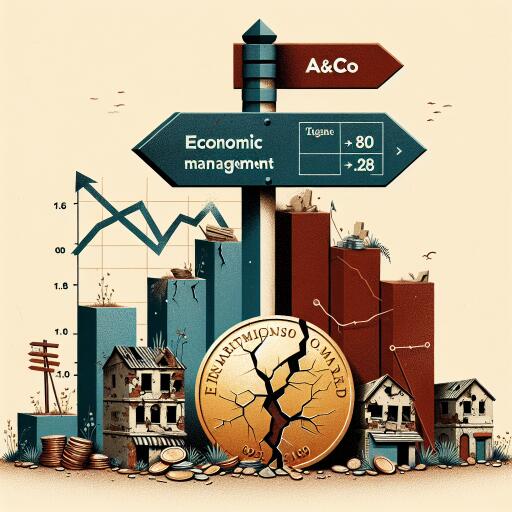Nigerian Economy Critiqued for Poor Management Over Past Eight Years
In a recent assessment, rating agency Agusto & Co. delivered a critical review on the state of Nigeria’s economy management over the previous eight years. The evaluation was detailed in their monthly Newsletter for January, titled “2024: A Year of Reckoning, Turning Points and Balancing Acts,” offering insights and future projections on various economic indicators including foreign exchange rates, inflation, and GDP growth, among others.
The report emphasized the urgent need for a cohesive policy approach to tackle the myriad economic challenges facing the country. It highlighted the contrast between the country’s financial governance in the past eight years and the expectations from the current government to steer the economy towards better management.
Agusto & Co.’s analysis pointed towards several key areas where they foresee significant changes or challenges. One notable area is food production. The rating firm predicted that the cessation of intervention finance programs like the “Anchor borrowers’ program” by the Central Bank of Nigeria (CBN), combined with ongoing security concerns in the Middle-belt and North-west regions and escalating tensions in the neighboring Niger Republic, could severely hamper crop production in the upcoming year.
The CBN’s role in intervention finance came under discussion as the bank decided to discontinue such programs. Bank Governor Yemi Cardoso has defended the decision, stating these initiatives fall outside the CBN’s primary functions and area of expertise.
Concerning the nation’s currency, Agusto & Co. projects a sharp decline in the value of the Nigerian Naira, with expectations for it to settle at N1100/$ on the official market by the end of 2024. At present, the exchange rate already exceeds N1400/$, indicating significant pressure on the Naira.
The agency also touched upon the dilemma facing the CBN regarding interest rates. With the President advocating for lower rates amidst an economic environment that typically warrants higher interest rates to curb inflation and stabilize the currency, the CBN finds itself at a crossroads. This situation is poised to test the bank’s independence as it prepares for its first Monetary Policy Committee (MPC) meeting since July, scheduled for the 26th and 27th of February. Ahead of the meeting, there is widespread anticipation among analysts for an increase in interest rates.
The comprehensive review by Agusto & Co. sheds light on the various economic challenges facing Nigeria and underscores the need for strategic policy planning and implementation. The country stands at a critical juncture, with decisions made in the near future having the potential to significantly impact its economic trajectory.
